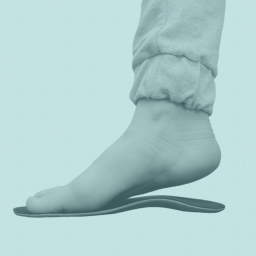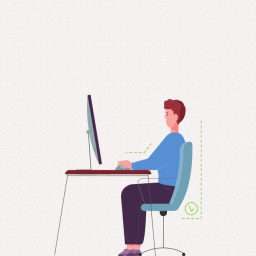The healthcare shift to patient-Centered care:
Today’s society is fast-paced and we live in a day of age where individuals increasingly favour an active role in designing their own lives. The healthcare arena is no different. More and more people are becoming increasingly engaged in their healthcare journeys in the fast-changing, complex and evolving healthcare landscape. Learn more about our model of patient-centered care in a collaborative multi-disciplinary environment.
Going to see a doctor is rarely a welcomed experience by most. Chronic diseases affect more than 50% of our aging Canadian population. Healthcare dollars are eating up a large portion of provincial budgets. Concerning how healthcare is being delivered, care quality remains a universal constant among the majority of public and professional stakeholders. Almost gone are the traditional days of “doctor-centered care” where patients are rarely consulted on healthcare delivery. This outdated model is mostly designed to meet organizational priorities and not patient needs.
Patient-centered care
A paradigm shift in healthcare delivery has occurred, and the emerging concept of “patient-centered care” is widely debated and taking centre stage. Since 1998, the Health Care in Canada (HCIC) survey has served as Canada’s Healthcare Report Card. It is a trustworthy source of national data and peer-reviewed healthcare research findings. Their vision is to provide reliable evidence to inform and influence the improvement of Canadian health policy and care. Canadians value timely access to care, perceived respect and caring with its delivery, decisions made in partnership among patients and providers, and within a basic belief that care should be based on patient needs versus their ability to pay.
In patient-centered care, an individual’s specific health needs and desired health outcomes are the driving force behind all healthcare decisions and quality measurements. Patients are partners with their healthcare providers. Providers treat patients not only from a clinical perspective, but also from an emotional, mental, spiritual, social, and financial perspective.
Active Patient Participation
A vital part of patient-centered care involves the active participation of patients along their healthcare journey. This means you are choosing to be included in decision-making, healthcare planning and goal setting, which in turn improve overall health outcomes.
Healthcare professionals should provide patients information necessary to make informed decisions and allow for time and opportunities to ask questions and talk to family and friends before making decisions.
Patients also have the right to refuse any treatment they are uncomfortable with. If you lose the capacity to make decisions, you have the right to appoint someone to make medical decisions for you.
Communication
High-quality healthcare is based on open and effective two-way communication between you and your healthcare professional. Your healthcare professional should explain information about your care and condition, including treatment options, prognosis, potential side effects, and costs. You should be able to ask questions, and understanding your treatment options will help you make informed decisions about your care.
Collaboration
Collaborative care is an essential component in patient-centered healthcare. This encourages active collaboration and shared decision-making between patients, families, and all healthcare providers involved. Collaboration enables the design and management of a customized care plan. These elements of patient-centered care, in turn, affect the way health systems and facilities are designed, and managed and the way care is delivered. A healthcare system or facility’s mission, vision and values are usually aligned with patient-centered goals.
What the research is saying
Research has shown that the relationship between a patient and their doctor greatly determines treatment outcomes. A strong doctor-patient relationship affects the patient’s satisfaction with care. As the patient-centered healthcare model becomes universally prevalent in our healthcare landscape, it is expected that all patients will become more engaged and satisfied with the delivery of their care. Clinical efficacy and improved health outcomes will have a far-reaching impact, resulting in healthier societies overall.
Collaboration and PAtient-Centered Care at CURAVITA
At CURAVITA Health Group our team of Chiropractors, Physiotherapists and Registered Massage Therapists are pleased to collaborate. Together, we create a customized care plan to meet your specific needs. We are always happy to extend this service and further discuss your care with your family physician and other healthcare professionals.
Our collaborative care approach to chiropractic care, physiotherapy and massage therapy within the Ottawa health and the medical community is about putting patients first. Built on the very foundation of our core values of trust, respect, and honesty. We uphold this collaborative approach through mutual respect with both medical professionals and our patients. This mutual respect is our gold standard in providing quality family healthcare. We believe this collaborative approach advances the quality of care in family health, and wellness in communities and results in excellent care for all.
If you think you need musculoskeletal (MSK) care and are not sure where to start, book a comprehensive assessment today. Our model of patient-centered care in a collaborative multi-disciplinary environment. We ensure you get the right care, at the right time and in the right place.
For more information or to book an appointment with one of our chiropractors, physiotherapists or massage therapists, visit our clinic websites at Curavita Byward and Curavita Glebe.
Byward Market
Email: info.byward@curavita.com
Glebe
Email: info.glebe@curavita.com
| Monday | 7:00 AM - 7:00 PM |
| Tuesday | 7:00 AM - 7:00 PM |
| Wednesday | 7:00 AM - 7:00 PM |
| Thursday | 7:00 AM - 7:00 PM |
| Friday | 7:00 AM - 7:00 PM |
| Saturday | Closed |
| Sunday | Closed |
| Monday | 9:00 AM - 5:00 PM |
| Tuesday | 9:00 AM - 5:00 PM |
| Wednesday | 9:00 AM - 5:00 PM |
| Thursday | 9:00 AM - 5:00 PM |
| Friday | 9:00 AM - 5:00 PM |
| Saturday | 9:00 AM - 5:00 PM |
| Sunday | 9:00 AM - 5:00 PM |
















